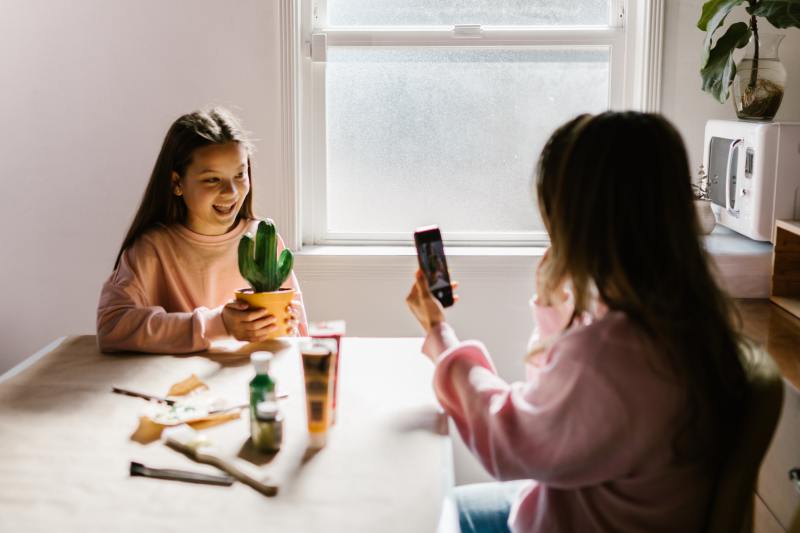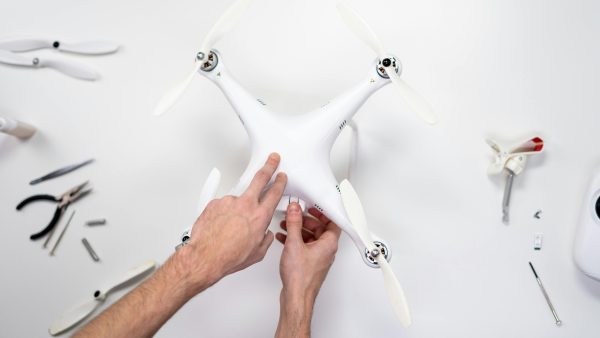Minors and the Internet, a never-ending debate
The Internet is an instrument full of benefits for our society, but, it also has its drawbacks, from which we must protect minors

No one doubts, or shouldn’t doubt, all the benefits that the Internet brings for the progress of society, including all age groups, although it’s also commonly known that, like everything else, it must be used with common sense and minimum standards of prudence.
The sector regarding which the Internet causes the most concern is probably that of minors, particularly in view of the time they spend in front of a screen, as well as the possibility of being tricked by a third party.
Children becoming hooked on mobiles, the Internet and social media is an issue that leads to endless debates about time and usage and the safety involved.
A mobile from the age of 11
There are numerous experts in the field and all kinds of recommendations that suggest that parents and guardians should be responsible for discerning which one is best-suited to their children’s habits.
Here is an attempt to display a map of the situation, and what better way to do so than to go hand in hand with a prestigious organisation such as UNICEF, which, in its report titled “The Impact of Technology on Adolescence”, depicts the reality we’re facing.
The study, conducted with the replies of 50,000 pupils from public and private secondary schools in the 17 autonomous communities, shows that children have mobile phones from the age of 11 and one in three of them is hooked on the Internet and social media, to which they connect every day or almost every day.
It also warns that 22.5% of young people could be experiencing cyberbullying.
In terms of usage habits, 90.8% go online every day or almost every day, six out of ten teenagers sleep with their mobile phones and one in five of them uses it after midnight every day or almost every day.
Problematic use
UNICEF speaks of “problematic use” to refer to children’s addiction to the Internet and social media. A use, the organisation argues, that generates a high degree of interference in their daily lives and a personal, family, academic and work-related impact, which may even be accompanied by clinical symptoms.
In their responses the teenagers acknowledge that they are online for more than 5 hours a day during the week (31.5%), while half of them exceed these hours of use at the weekend.
One of the main data leading to a high degree of concern is that the teenagers’ intention to go online is driven by a desire to feel less lonely, as 40 per cent of them acknowledge. They connect to seek positive relationships, communicate with friends and have fun.
However, this aim isn’t always achieved, as a high percentage of minors indicate that their experiences on social media have provoked feelings of fear (24.7%), anxiety (19.7%) and unease (27.9%).
The bullied and bullies
Another issue also highlighted in UNICEF’s report is the number of risks identified by young people in their digital relationships, in which bullying practices are increasingly common, while more than half of those who suffer from bullying perform it themselves.
The fact is that 98.5% are registered on a social network and 61.5% have more than one profile on a single network, which they use selectively for their family and acquaintances and their peer group.
The data are worrying, as one in ten minors admits to having received a sexual proposition on the Internet from an adult through social media, chats or video games and 11.4% have been pressured to send photos or videos of themselves with a sexual content.
Safe use
Given this state of affairs, it’s vital to incorporate some rules of use into their daily lives and educate them on how to use this great instrument of communication called the Internet, a tool that’s essential nowadays but one which, like all tools, has its risks.
There are numerous recommendations, programmes and applications created for this purpose, namely to protect minors from the dangers of the Internet, but special mention should be made of the work carried out by the Incibe (National Cybersecurity Institute), the main body that oversees online safety.
The Incibe also has a telephone number for queries and complaints (017) that focuses on cases of phishing, cyberbullying and ransomware and provides guides offering support and help to enable people to learn about and defend themselves from the problems stemming from the Internet.
These include the Guide to safety on social media for families and the Guide to parental mediation, as well as the Guide to minors on the Internet for parents, which contains general tips and others divided by the minors’ age groups.
Adopt and adapt
In short, the Internet is an instrument full of benefits for our society, but, like everything else, it also has its drawbacks, from which we must protect ourselves and protect minors. This involves “adopting and adapting” technology to our lives, as the journalist María Zabala, who specialises in communication, families and technology, points out.
This specialist makes things very clear. Technology is often blamed, but the users themselves are those who choose how to express themselves on social media.
Related Content
Communication
Contact our communication department or requests additional material.


